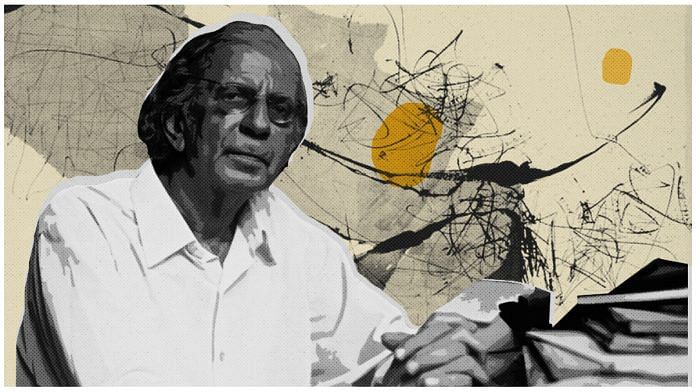Most of us remember the name Nissim Ezekiel from studying his poem Night of the Scorpion in high school. Widely considered the father of Indian-English poetry in Independent India, Ezekiel’s talents, though, went beyond verse.
He wrote prose and plays, co-founded the literary magazine Imprint in 1961, worked as an art critic for The Times of India between 1964-66 and headed the English department of Mumbai’s Mithibai College’s from 1961 to 1972 with brief stints at University of Leeds and University of Chicago in the 1960s.
He taught at the University of Mumbai till he retired in 1984. His student and personal biographer R. Raj Rao remembered the poet fondly but critically.
“I learnt the need for rhythm and economy in a poetic line from him. But I was critical of the moralising stance he had assumed in many of his poems, which made them preachy,” he once said.
He was awarded a Sahitya Akademi award in 1983 and a Padma Shri five years later for his contributions to Indian-English writing. His most famous works include Latter-Day Psalms, The Discovery of India, The Third, The Unfinished Man, The Exact Name and Hymns in Darkness. His poetry dealt with themes of language and its powers and limitations, the craft of writing, religious scepticism, memory and, overwhelmingly, what it means to be Indian.
Towards the end of his life, the poet suffered from Alzheimer’s. He eventually passed away in 2004 in Mumbai at the age of 79.
On his 95th birth anniversary, ThePrint takes a look at some of his work.
A layered Indian-Jew identity
Born into a “modestly bourgeois Jewish family” on 16 December 1924, Ezekiel belonged to the Marathi-speaking Bene Israel Jewish community in Bombay, which at the time was 20,000 strong but in 2004, only 5,000 remained. His parents were teachers; his father taught botany at The Wilson College (later Ezekiel’s own alma mater) and his mother was a school principal. He went on to translate poetry from Marathi and even co-edited a fiction and poetry anthology.
Unlike a majority of Bene Israel Jews who returned to Israel following Partition and Indian Independence, Ezekiel’s family stayed on. In Three Plays, a comedy in three acts, Ezekiel revealed his frustration for people who go abroad “for false reputation”. One of the characters, Raj, expresses this in the lines — “You could go abroad and come back. They make better use of you when you go abroad and come back. At least they pay you better. You need not learn anything abroad. Just go and come back.”
He did touch upon the alienation felt by his ancestors on settling down in the Indian continent and struggling to find a place in the traditional caste-hierarchy. “My ancestors, among the castes, were aliens crushing seed for bread,” he wrote in a poem called Background, Casually. The line right after this reads “(The hooded bullock made his round)”, which is more of a detailed reference to his stock, who were oil-pressers from Galilee. The process of oil crushing involved a blind-folded bullock that crushed seeds to obtain oil. According to The Guardian, these oil-pressers were shipwrecked off the Indian subcontinent and eventually settled down, “forgot their Hebrew, yet maintained the Sabbath”.
Ezekiel, never shied away from his Jewishness or his language of choice being English. “Now I am through with /the Psalms; they are /part of my flesh,” he writes in his last collection of poems, Latter-Day Psalms (1982).
He also consistently reiterated the Indianness of his identity, and grappled with how history and present interact. A few lines from his collection, Poster Poems (1973), provide deeper insight into his layered identity —
“I’ve never been a refugee,
Except of the spirit,
A loved and troubled country
Which is my home and enemy.”
At a time when issue of Indianness and citizenship are on everyone’s mind, in the wake of the passing of the Citizenship (Amendment) Bill by both Houses of Parliament, Ezekiel’s words remain burningly relevant.
Also read: Harivansh Rai Bachchan — a critic of religiosity, class system and clingy lovers




Very interesting. thanks for sharing
Any articles on Gieve Patel’s poetry